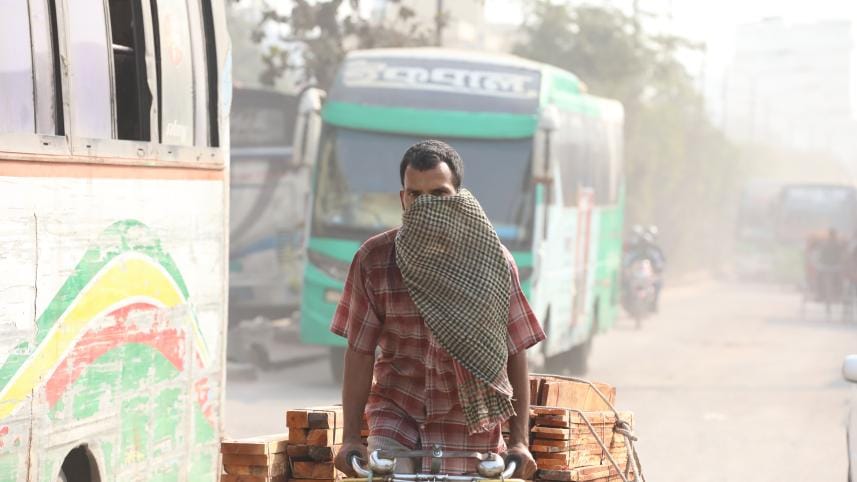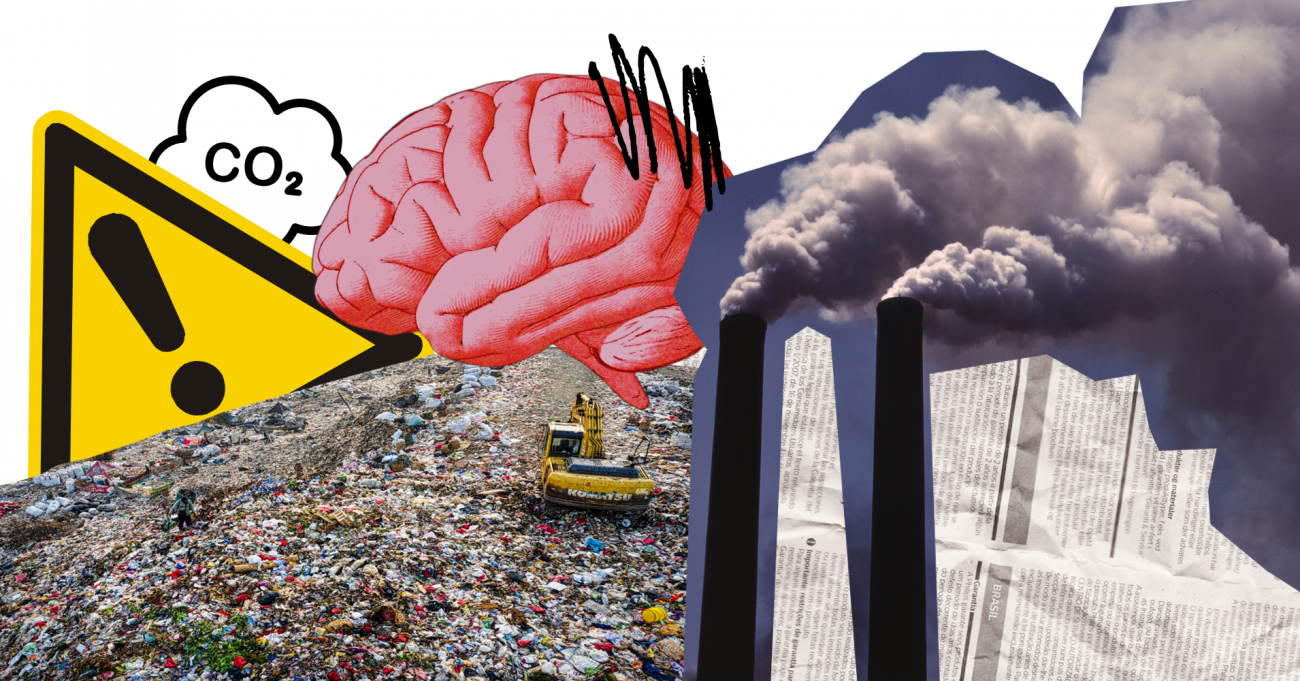Wear masks outdoors

Due to poor quality of air, the environment ministry yesterday asked people in and around Dhaka to wear masks when outdoors and urged "sensitive individuals" to avoid going outside unless absolutely necessary.
The ministry issued the advisory saying that the air quality in Dhaka and its surrounding areas has deteriorated to an unhealthy and sometimes hazardous level (AQI above 250).
"In this situation, the public is advised to wear masks when outdoors, while sensitive individuals [those with breathing problems, allergies, and other respiratory issues] are requested to avoid going outside unless absolutely necessary," said the release.
For public information, air quality data is regularly updated on the Department of Environment's website.
The advisory urged citizens to monitor this information and take necessary precautions accordingly.
Dhaka again topped the list of cities around the world with the worst air quality yesterday.
With an air quality index (AQI) score of 241 at 9:00am, Dhaka ranked first in the list of cities with the most polluted air.
An AQI between 151 and 200 is said to be "unhealthy" while 201 and 300 is considered "very unhealthy", and 301 to 400 is considered "hazardous", posing serious health risks to residents.
Pakistan's Lahore, Vietnam's Hanoi, and India's Delhi occupied the second, third, and fourth places with AQI of 219, 194, and 191 respectively.
In Bangladesh, the AQI is based on five criteria pollutants -- Particulate Matter (PM10 and PM2.5), NO2, CO, SO2 and Ozone.
Dhaka has long been grappling with air pollution issues. Its air quality usually turns unhealthy in winter and improves during the monsoon.
As per the World Health Organization (WHO), air pollution kills an estimated seven million people worldwide every year, largely as a result of increased mortality from stroke, heart disease, chronic obstructive pulmonary disease, lung cancer, and acute respiratory infections.



 For all latest news, follow The Daily Star's Google News channel.
For all latest news, follow The Daily Star's Google News channel. 

Comments